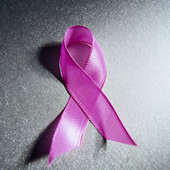
FRIDAY, Dec. 7 (HealthDay News) — The drug Avastin (bevacizumab), when added to chemotherapy, does not improve disease-free survival in patients with triple-negative breast cancer any better than chemo alone, new research finds.
“Therefore, sadly for patients, we have nothing extra to add to chemotherapy for early, triple-negative breast cancer,” Dr. David Cameron, a professor of oncology at Edinburgh University in Scotland, said in a news release from the American Association for Cancer Research.
He was scheduled to present the findings Friday at the 2012 San Antonio Breast Cancer Symposium.
Previous studies of Avastin had found benefit. However, in 2011, the U.S. Food and Drug Administration revoked approval of the drug for late-stage breast cancer, citing risks — such as heart failure and severe high blood pressure — that outweigh the benefits. The drug may still be used off-label, with doctors prescribing it to patients if they think that patient could be helped.
This new study signals the death of the drug for breast cancer, although it is helpful in other cancers, said Dr. Joanne Mortimer, director of Women’s Cancer Programs for the City of Hope Comprehensive Cancer Center in Duarte, Calif. She reviewed the new findings.
Another physician took a different view, saying others should consider continuing research on the drug. “We have all seen some success stories with the drug, and Avastin may be a drug that works in only a select few,” said Dr. Stephanie Bernik, chief of surgical oncology at Lenox Hill Hospital in New York City.
Avastin is marketed by Genentech. Swiss drugmaker Hoffmann-La Roche, which acquired Genentech, sponsored the study.
For the new study, researchers randomly assigned nearly 2,600 patients with triple-negative operable primary invasive breast cancer to four or more cycles of chemotherapy. They used either an anthracycline-based or taxane-based chemo drug. One group also received a year of Avastin therapy.
Triple-negative breast cancer refers to those tumors that do not have estrogen or progesterone receptors or express the HER2/neu gene.
The researchers followed the women to see if the Avastin made a difference in disease-free survival. At a median follow-up of 32 months, no significant improvement occurred by adding Avastin.
Among those who received chemo alone, 107 died during the follow-up period, compared with 93 deaths in the group getting chemo plus Avastin, the investigators found.
Those in the Avastin group were more likely than the chemo-alone group to have problems such as severe high blood pressure and congestive heart failure.
The drug is effective in other cancers, Mortimer said. “It’s a very important drug for lung, [gastrointestinal] and kidney cancers,” she explained.
The drug is still listed in the recommendations for breast cancer treatment by the National Comprehensive Cancer Network. The not-for-profit is an alliance of 21 major international cancer centers, including City of Hope.
Health insurers turn to the recommendations when deciding which drugs to cover. Avastin is costly, about $112,000 a year for breast cancer patients.
Because this study was presented at a medical meeting, the data and conclusions should be viewed as preliminary until published in a peer-reviewed journal.
More information
To learn more about breast cancer, visit the American Cancer Society.

